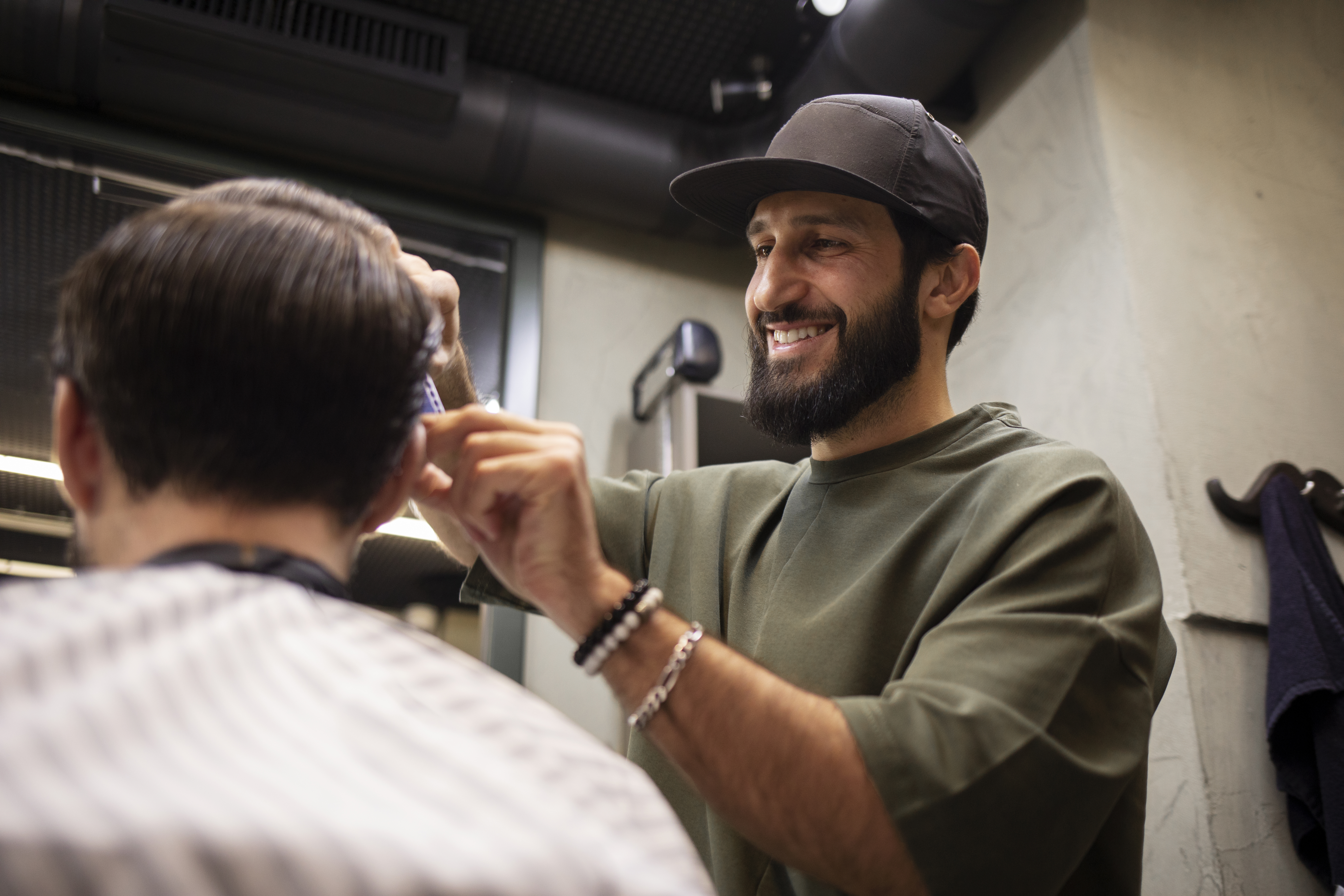
Salons have always represented more than just places to get a trim or touch-up—they’re reflections of the culture, the mood, and the evolving identity of those who visit them. In recent years, that reflection has begun to take on a distinctly Gen-Z look. With their fearless self-expression, deep social consciousness, and seamless integration of technology, Gen-Z clients are changing the entire tone of salon spaces. From design and services to communication and community, the expectations of this young generation have sparked a glow-up that is transforming salon culture at every level.
This shift isn’t just about following new trends or adopting digital tools; it’s about embracing a completely different mindset. Gen-Z approaches beauty as fluid, inclusive, and interactive, pushing salons to evolve from static service providers into dynamic, creative environments that offer more than just aesthetics—they offer experience, identity, and connection.
Empowered by Expression
For Gen-Z, hair is more than a style—it’s a statement. While previous generations often gravitated toward trends defined by fashion icons or celebrities, Gen-Z tends to carve out its own visual identities. Their hair becomes a personal billboard, a visual cue that reflects how they feel, who they are, or what they stand for. Whether it’s through vivid colors, intricate braids, bold undercuts, or natural textures, Gen-Z sees hair as an evolving form of self-expression rather than something that must conform to societal norms.
This personal approach to beauty encourages salons to foster environments where creativity takes precedence over conformity. Stylists no longer act solely as executors of a client’s request. Instead, they function as creative collaborators, helping to bring highly individual visions to life. As a result, consultations are no longer brief exchanges—they’re in-depth conversations centered on emotion, lifestyle, and identity. This evolution demands a greater sense of empathy, artistry, and flexibility from salon professionals.
Digital as the Default
The Gen Z influence on salon culture is most visible in the way technology has become an integral part of the experience. This generation doesn’t just prefer digital interfaces—they expect them to be there. Booking an appointment via a responsive app, receiving confirmation texts, and having the ability to reschedule or consult virtually are baseline standards, not premium offerings. Salons that still rely solely on phone calls or static websites risk appearing outdated and unapproachable to this demographic.
Additionally, Gen-Z doesn’t separate the digital world from the physical one. They’ll document their salon visits in real-time, tagging stylists, rating services, and sharing before-and-after photos across their platforms. This real-time storytelling turns each salon visit into a mini media moment. Stylists who are active on social platforms and understand content culture are often better positioned to connect with Gen-Z clients, not just in the chair but beyond it.
The digital impact goes even further. Augmented reality tools that allow clients to preview hair colors or cuts before committing are gaining popularity, helping reduce risk while enhancing the excitement of transformation. Salons that embrace these tools communicate that they’re in tune with today’s tech-forward beauty landscape.
A Shift Toward Purpose
Beyond aesthetics and convenience, Gen-Z cares deeply about values. Their consumer decisions are often rooted in ethical considerations. When they enter a salon, they look for more than talent and trend awareness—they want to know what a business stands for. Whether it’s sustainability, inclusivity, or support for marginalized communities, Gen-Z evaluates brands and spaces based on their real-world impact.
This value-driven approach has led many salons to audit their practices. Offering cruelty-free and vegan products, reducing waste, and incorporating eco-friendly materials are not only good for the planet—they’re good for business. Salons that are transparent about their values and back them up with meaningful actions are more likely to build trust and rapport with Gen-Z clients.
The emphasis on inclusion is extreme. Gender-neutral pricing, services for all hair types, and staff training on diverse beauty needs are now critical aspects of a successful salon. Gen-Z doesn’t just want to see themselves represented in marketing—they want to feel welcomed and respected in the space itself. This expectation challenges salon owners to evaluate not only their policies but also the attitudes and language used by staff.
A New Kind of Community
Where salons once operated as individual businesses with loyal local clientele, today’s salon culture—driven by Gen-Z—has expanded into broader communities, both physical and digital. Many Gen-Z clients follow their favorite stylists across various platforms, watch their tutorials, and engage with them in the comment sections. The stylist-client relationship now often begins before a single appointment is booked and extends far beyond the salon chair.
This expanded sense of community has opened new doors for collaboration. Salons that host events, offer workshops, or participate in local initiatives find themselves becoming more than service providers—they become hubs of creativity and connection. Gen-Z clients are drawn to spaces that encourage participation and make them feel part of a larger movement or aesthetic collective.
The Rise of Micro-Influence
While social media mega-influencers still hold sway in certain corners of the beauty world, Gen Z is redefining what influence means. They gravitate toward authenticity and relatability, often favoring micro-influencers with smaller but more engaged audiences. This preference extends into their choice of salons and stylists.
A stylist with a modest yet engaged following who consistently shares behind-the-scenes content, product recommendations, and honest insights is often more appealing than a high-profile personality with generic posts. Salons that empower their staff to develop their own digital voice and brand presence are more likely to benefit from this shift in influence.